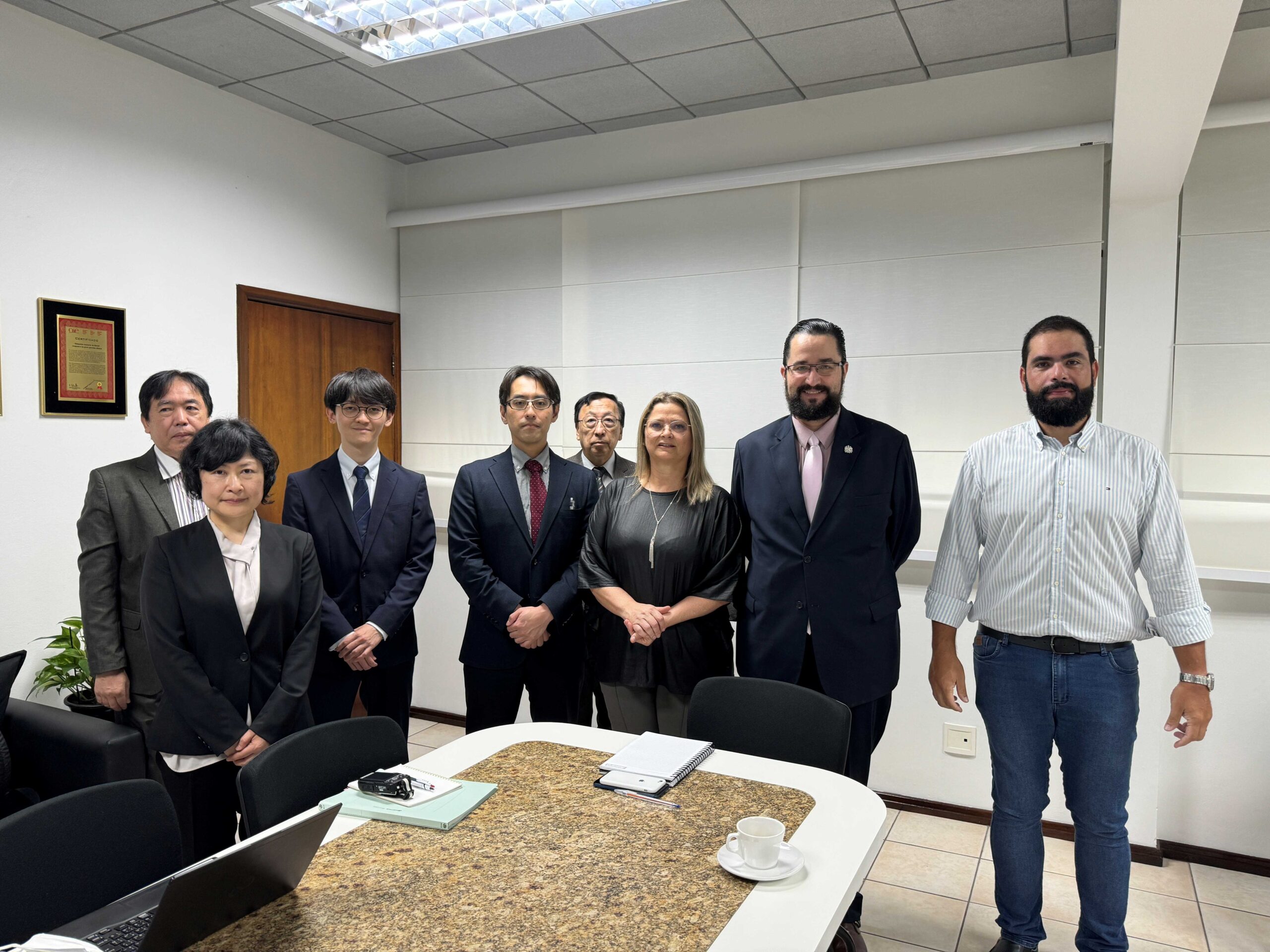State Government presents animal health defense model to Japanese delegation

A Japanese delegation arrived in Santa Catarina, this Monday (26), for a technical mission with the goal of verifying the animal health defense system run by the Santa Catarina Integrated Agricultural Development Company ( Cidasc ), as well as for additional checks in agroindustry. The intention is to evaluate the guarantees for regionalization of focus, in the case of highly pathogenic avian influenza, which was proposed by the Ministry of Agriculture and Livestock (Mapa), in 2023.
The delegation, accompanied by Mapa representatives, was welcomed by the president of Cidasc, Celles Regina de Matos, and the secretary of Foreign Affairs, Juliano Froehner.
Secretary Froehner highlighted the excellent relationship between Santa Catarina and Japan, with consolidated international trade for chicken, pork, apples, among other products. He recalled previous technical cooperation projects with the Japanese that benefited production in Santa Catarina, such as the import of cultivars that gave rise to apple orchards, today one of the State’s main assets.
“We have a very strong history with Japan. We have a great relationship and admiration and a continuous desire to work together with this country,” said the secretary.
The Japanese delegation is checking, in detail, the safety system in agricultural production in Santa Catarina, mainly regarding animal health. “What we hope is to be able to obtain from the Japanese government the opportunity to guarantee our production in compartments, in the event of an outbreak of avian influenza, without losing all of the State’s exports. This is a very important precedent and one that could be used throughout Brazil, if consolidated here”, explained President Celles.
The prospect of this negotiation was also celebrated by secretary Juliano Froehner. “It is a way of recognizing Santa Catarina for its work of more than four decades in favor of animal health. This places our state at a level that deserves international recognition,” he stated.
At the reception for the Japanese delegation, Celles Regina de Matos presented the structure of Cidasc and its workforce, with more than a thousand employees, made up of more than 200 veterinarians dedicated to animal health protection in the company. “Also counting on the support of Mapa’s federal inspectors is very important at a time like this, when there is an emergency to combat avian influenza, which covers the entire country,” stated the president.
She also explained the power of Santa Catarina’s agricultural production and the export volumes of animal and vegetable protein, plus wood, which is related to guaranteeing the health of Santa Catarina’s products. “The health of our products is the competitive differentiator. We have volume, but we differentiate ourselves, above all, by the quality of what we produce”, emphasized the president of Cidasc .
After the reception in the presidency room, the technical team, led by the director of Agricultural Defense, Diego Torres Severo, continued the mission’s work, together with Mapa. The group was received at the Cidasc State Department of Animal Health , at the company’s headquarters, and the Japanese delegation headed to the south of the state, where the agenda goes on. The final report must be sent after the delegation returns to Japan and its deliberations on the data obtained during the technical visit.
Asian Market
Japan is already one of the largest import markets for Santa Catarina chicken production, and has the potential to purchase other animal proteins produced in Santa Catarina.
On July 17, after confirming a case of Highly Pathogenic Avian Influenza (IAAP), in Maracajá, in the south of Santa Catarina, Japan temporarily suspended the shipment of the Brazilian product to its country. Trade with the Asian country generated US$310.8 million in 2022, for Santa Catarina.
One month after the measure, the Government of Japan resumed imports, as the case of avian influenza in wild and backyard birds does not compromise Brazil’s status as a country free from Highly Pathogenic Avian Influenza.
Of the twenty outbreaks of the disease registered in Santa Catarina last year, 19 were in wild birds and only one in backyard birds. This focus, in Maracajá, was quickly resolved by Cidasc , and thanks to the work on health education, prevention and monitoring, it remains the only one.
Text and photos: Cidasc
